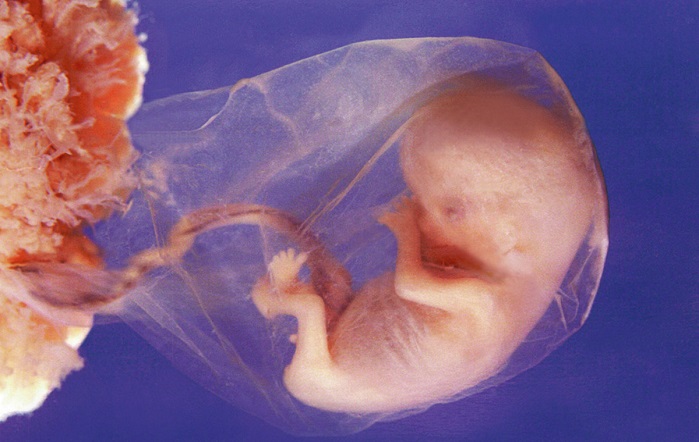South Carolina has the backing of 20 states in its effort to protect unborn babies with beating hearts from abortion.
On Tuesday, the states, led by Alabama Attorney General Steve Marshall, filed an amicus brief to the Fourth Circuit Court of Appeals defending the South Carolina Fetal Heartbeat and Protection from Abortion Act, according to an announcement from Marshall’s office.
The pro-life law, which passed earlier this year, prohibits abortions after an unborn baby’s heartbeat is detectable, typically about six weeks of pregnancy. Exceptions are allowed in cases of rape, incest or risks to the mother’s life. Abortionists who violate the law could face a $10,000 fine or imprisonment for up to two years.
LifeNews depends on the support of readers like you to combat the pro-abortion media. Please donate now.
The new law also requires abortion facilities to give the mother an opportunity have an ultrasound and view the image of her unborn baby, hear her baby’s heartbeat and receive additional information about her baby’s development.
Planned Parenthood and the Greenville Women’s Clinic filed a lawsuit immediately after the law passed, and federal Judge Mary Geiger Lewis blocked it in March.
In their brief this week, the 20 state attorneys general said Lewis overstepped her bounds by blocking the entire law in an “error-filled” opinion.
“South Carolina’s fetal heartbeat law was struck down in an error-filled district court opinion,” Marshall said on behalf of the states. “Although Planned Parenthood and the other plaintiffs challenged only the law’s regulation of abortion after a fetal heartbeat is detected, the district court enjoined the law in its entirety—including portions of the law that dozens of other states already have and regularly enforce.”
For example, Marshall said at least 24 states require abortion facilities to offer the mother the chance to see the ultrasound image of her unborn baby and 16 require that they give her the opportunity to hear her unborn baby’s heartbeat.
“Yet the district court enjoined South Carolina’s ultrasound disclosure law,” Marshall said.
In their brief, he and the 19 other state attorneys general said the ruling “aggrandizes the judicial power by treating the court’s injunction of the challenged provision as erasing it entirely so the whole Act collapses,” according to the Associated Press.
The other states supporting South Carolina are Alaska, Arkansas, Georgia, Idaho, Indiana, Kansas, Kentucky, Louisiana, Mississippi, Missouri, Montana, Nebraska, North Dakota, Ohio, Oklahoma, Tennessee, Texas, Utah and West Virginia.
Last week, South Carolina Gov. Henry McMaster asked the Fourth Circuit Court of Appeals to reverse Lewis’s ruling blocking the law.
“As I’ve said before, the right to life is the most precious of rights and the most fragile,” McMaster said in a statement. “We must never let it be taken for granted or taken away. And we must protect life at every opportunity, regardless of cost or inconvenience.”
If enforced, the legislation has the potential to save thousands of babies’ lives. According to state health data, more than 5,100 abortions were reported in 2019 in South Carolina.
Polls suggest Americans support heartbeat laws. An April poll by the University of Texas-Austin found that 49 percent of Texans support making abortions illegal after six weeks of pregnancy, while 41 percent oppose it.
In 2019, a national Hill-HarrisX survey also found that 55 percent of voters said they do not think laws banning abortions after six weeks – when an unborn baby’s heartbeat is detectable – are too restrictive. Gallup polls consistently find that a majority of Americans think all or most abortions should be illegal.
About a dozen states have passed heartbeat laws in recent years. However, none of the laws are being enforced because of pro-abortion lawsuits and current U.S. Supreme Court precedent.
In 1973, the Supreme Court took away the states’ ability to protect unborn babies from abortion under Roe v. Wade, and instead forced states to legalize abortion on demand. Roe made the United States one of only seven countries in the world that allows elective abortions after 20 weeks.








